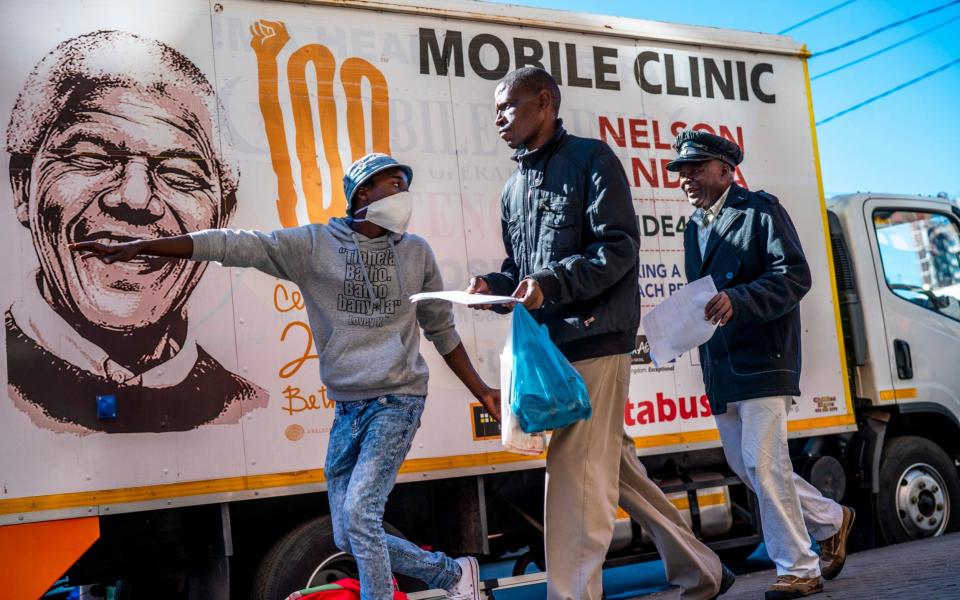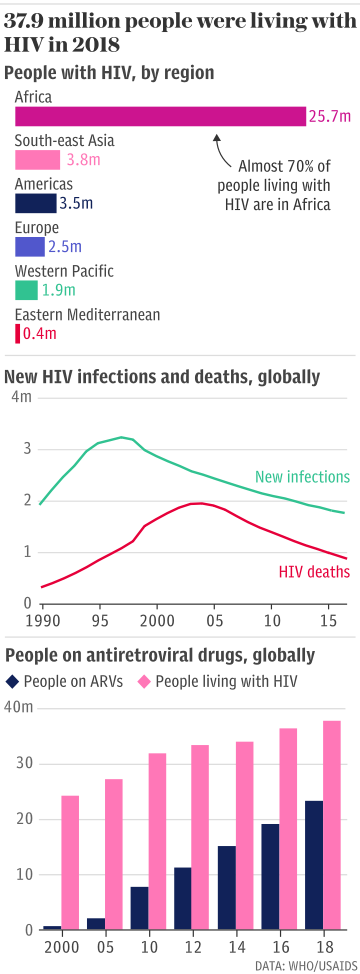Funding for HIV prevention within the world's most marginalised communities 'woefully inadequate'

Funding to help prevent new HIV infections within the world’s most marginalised communities is “way off track”, a landmark study has found.
Key populations – which include gay and bisexual men, transgender people, sex workers and people who inject drugs – represented more than half of all new HIV infections in 2018 alone.
However only two per cent of the total amount spent on the global HIV response went towards supporting these groups and their partners, according to an analysis by Aidsfonds and Communities of Change. Just 11 per cent of all prevention funding between 2016 and 2018 was spent on these marginalised communities.
The study, which is the first of its kind to look at support for these groups in lower and middle income countries, warns that the United Nations goal of ending the global Aids epidemic by 2030 will not be met unless more is done to address this funding gap.
"To end Aids by 2030 there needs to be a rapid scale-up of funding for effective HIV programmes for key populations," Winnie Byanyima, head of United Nation Agency UNAIDS, told a delegation at the launch of the report on Tuesday.
"Gay men and men who have sex with men, transgender people, people who inject drugs, sex workers and prisoners have been left behind for too long."
Globally the number of new HIV infections has barely declined in recent years. The study highlights a glaring 80 per cent shortfall between the resources needed to support key populations and the reality of the funding that was available from 2016 to 2018.

UNAIDS had estimated that $6.8 billion would be required for the delivery of essential services, including condoms, safe needles or information, education, the promotion of access to testing and treatment.
But in reality only $1.3 billion was made available to support these programmes, the report showed.
When broken down into key population groups, the funding disparity paints an even bleaker picture.
The risk of acquiring HIV was 22 times higher for gay and bisexual men than for all adult men in 2018. Yet HIV programmes targeting gay and bisexual men accounted for less than one per cent of the amount spent on the overall HIV response in lower and middle income countries between 2016 and 2018.
In comparison, the risk of acquiring HIV for people who inject drugs was 22 times higher than for the general population, yet HIV prevention programmes for these groups received only 0.4 per cent of the total funding.
This is not a coincidence, suggested Mirjam Krijnen, manager of international programmes at Aidsfonds.
“The final allocations of HIV funding given by countries and received from major donors do not always address the very real needs of key populations,” she said. “This is often due to persistent discrimination and stigma faced by these groups. This makes it challenging for them to access essential national health services.”
Gay and bisexual men, transgender people, sex workers and people who inject drugs account for more than 95 per cent of new infections in Eastern Europe, Central Asia, the Middle East and North Africa, where the epidemic is expanding.
Without adequate funding for HIV prevention programmes these numbers may only grow, however the evidence suggests that support for essential services remains on the decline.
Now, as the Covid-19 pandemic threatens to push the world even further off track, authors of the report are calling for countries to step up donations and engage with these marginalised communities to help win the fight against HIV.
“Covid-19 is exacerbating inequalities and creating additional barriers to accessing health care,” Peter Sands, executive director of the Global Fund to Fight AIDS, Tuberculosis and Malaria, said of the findings.
“Key populations risk being left even further behind. The best way to reach those most at risk is a collective commitment to fund quality programs designed specifically for – and led by – the key populations themselves.”
Protect yourself and your family by learning more about Global Health Security

 Yahoo News
Yahoo News 